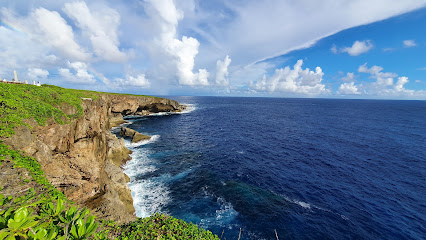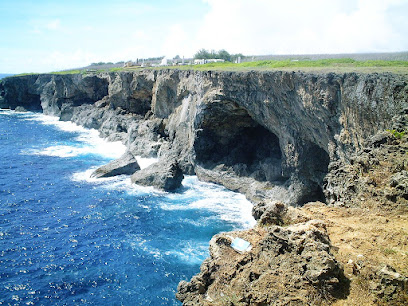
Banzai Cliff: A Historical Marvel in the Northern Mariana Islands
Banzai Cliff is a place where history and natural beauty converge. Located on the northern tip of Saipan in the Northern Mariana Islands, this cliff offers breathtaking panoramic views of the Pacific Ocean. The site is both serene and poignant, making it a must-visit for anyone traveling to the region. During World War II, Banzai Cliff became a historical landmark due to its tragic past. Japanese soldiers and civilians jumped off the cliff to avoid capture by American forces, believing it was more honorable. Today, the site stands as a solemn reminder of the war's impact and is marked by memorials and tributes. Despite its somber history, Banzai Cliff is also a place of incredible natural beauty. The clear blue waters crashing against the rocky shoreline create a stunning visual spectacle. Visitors can enjoy the scenic views, take memorable photos, and reflect on the site's historical significance. The area is also home to various wildlife, adding another layer of charm to this remarkable destination.
Local tips in Banzai Cliff
- Visit early in the morning or late afternoon for the best lighting and fewer crowds.
- Wear comfortable shoes as the terrain can be rocky and uneven.
- Bring water and sunscreen; there is limited shade at the site.
- Respect the memorials and tributes; it is a place of historical significance.
- Consider hiring a local guide to gain deeper insights into the site's history.
Banzai Cliff: A Historical Marvel in the Northern Mariana Islands
Banzai Cliff is a place where history and natural beauty converge. Located on the northern tip of Saipan in the Northern Mariana Islands, this cliff offers breathtaking panoramic views of the Pacific Ocean. The site is both serene and poignant, making it a must-visit for anyone traveling to the region. During World War II, Banzai Cliff became a historical landmark due to its tragic past. Japanese soldiers and civilians jumped off the cliff to avoid capture by American forces, believing it was more honorable. Today, the site stands as a solemn reminder of the war's impact and is marked by memorials and tributes. Despite its somber history, Banzai Cliff is also a place of incredible natural beauty. The clear blue waters crashing against the rocky shoreline create a stunning visual spectacle. Visitors can enjoy the scenic views, take memorable photos, and reflect on the site's historical significance. The area is also home to various wildlife, adding another layer of charm to this remarkable destination.
When is the best time to go to Banzai Cliff?
Iconic landmarks you can’t miss
Unmissable attractions to see
Forbidden Island Lookout
Experience breathtaking panoramic views of Saipan's stunning landscapes at the Forbidden Island Lookout, a serene observation deck for nature lovers.
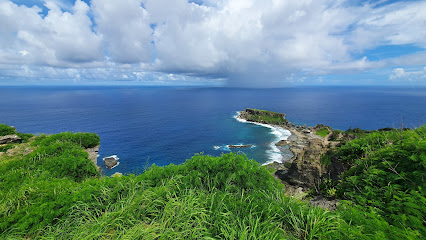
Saipan Sign
Discover the vibrant Saipan Sign, a symbol of the Northern Mariana Islands, where culture, beauty, and unforgettable memories await.
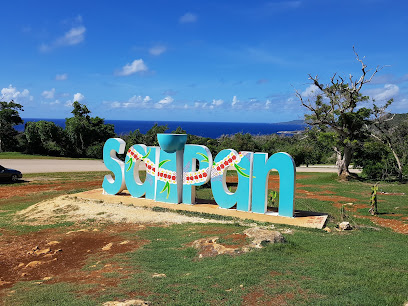
Naftan cliff
Discover Naftan Cliff in Saipan, a breathtaking tourist attraction with stunning ocean views and serene landscapes perfect for nature lovers.
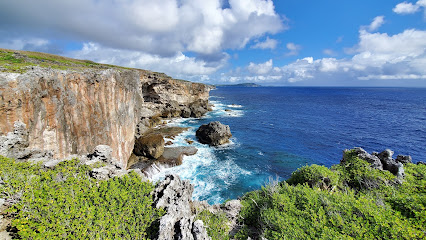
Essential places to dine
Surf Club Saipan Restaurant
Discover Surf Club Saipan: where local flavors meet stunning ocean views in a vibrant dining experience.
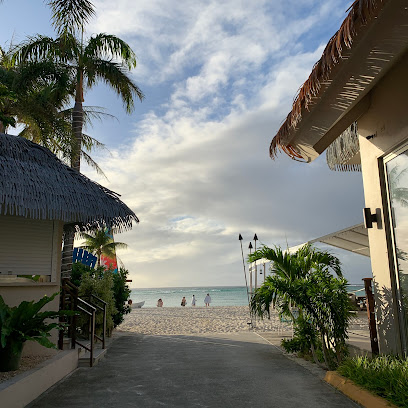
J's Restaurant
Discover culinary delights at J's Restaurant in Capitol Hill - where local flavors meet international cuisine at affordable prices.
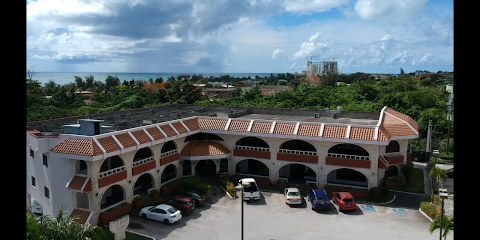
Loco Taco
Discover Loco Taco in Garapan - where vibrant flavors meet tropical charm for an unforgettable Mexican dining experience.
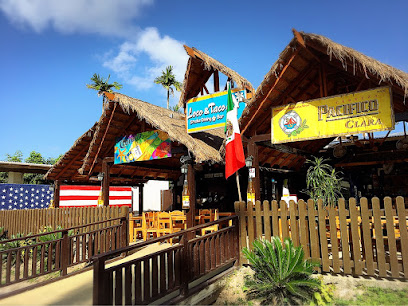
Himawari Restaurant
Discover authentic Japanese flavors at Himawari Restaurant in Garapan, Saipan – a culinary delight not to be missed!
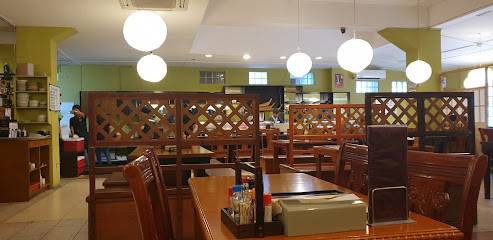
Oleai Beach Bar & Grill
Experience exquisite dining at Oleai Beach Bar & Grill - where stunning ocean views meet delicious local cuisine in Saipan.
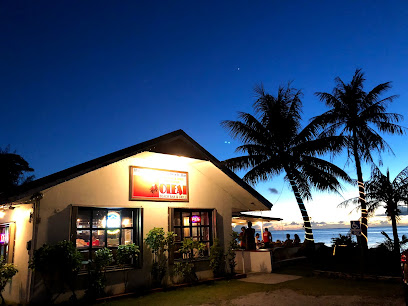
Kinpachi Japanese Restaurant
Experience authentic Japanese cuisine at Kinpachi Restaurant in Saipan, where every dish is crafted with fresh ingredients and rich flavors.
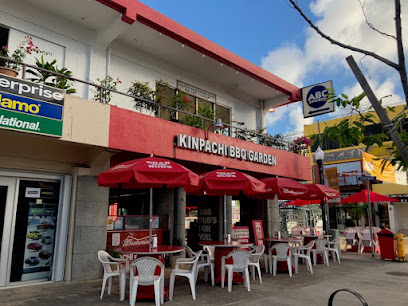
Great Harvest Bread Co.
Experience the taste of Saipan at Great Harvest Bread Co., where fresh ingredients meet island hospitality in every delicious bite.
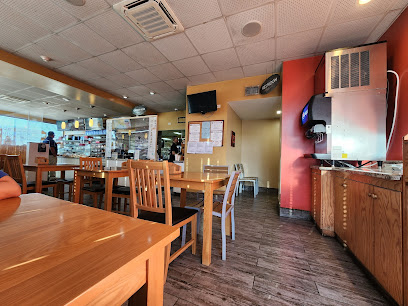
The Angry Penne
Discover authentic Italian cuisine at The Angry Penne in Saipan - where traditional flavors meet a vibrant dining atmosphere.
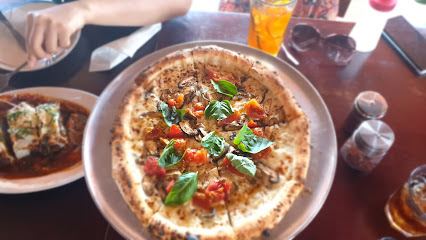
Naked Fish Bar & Grill
Experience Saipan's vibrant dining scene at Naked Fish Bar & Grill—where fresh seafood meets lively entertainment.
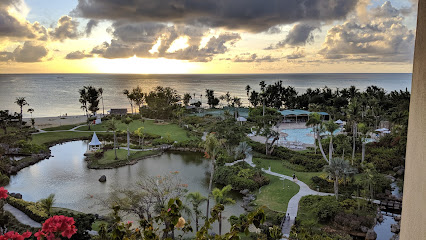
Plumeria Steakhouse
Discover exquisite steaks and local flavors at Plumeria Steakhouse in Garapan, Saipan – A must-visit for culinary enthusiasts!
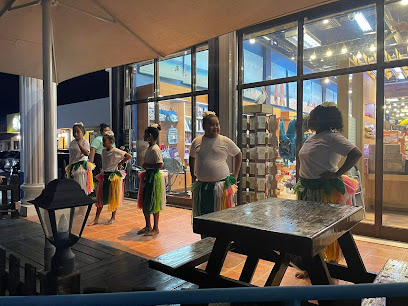
Country House Restaurant
Discover culinary excellence at Saipan's Country House Restaurant, where local flavors meet international cuisine in a picturesque setting.
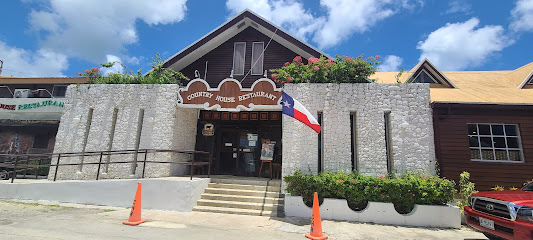
Garlic Grotto Restaurant
Experience authentic island cuisine at Garlic Grotto Restaurant in Garapan - where fresh seafood meets garlic-infused delight.
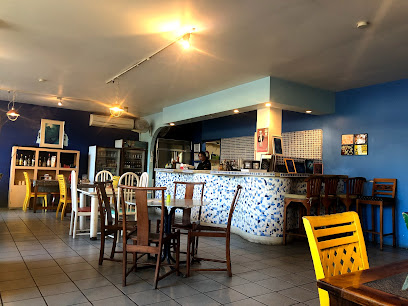
Coco Restaurant
Discover delicious local cuisine at Coco Restaurant in Saipan's Garapan district – where fresh ingredients meet culinary excellence.
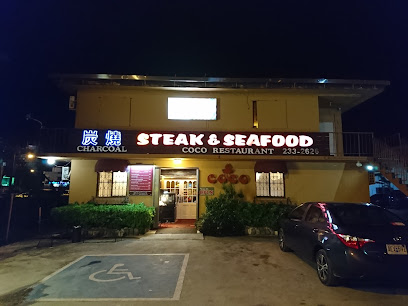
MORAE Kitchen and Bar
Experience the exquisite flavors of Saipan at MORAE Kitchen and Bar – where local ingredients meet culinary innovation.
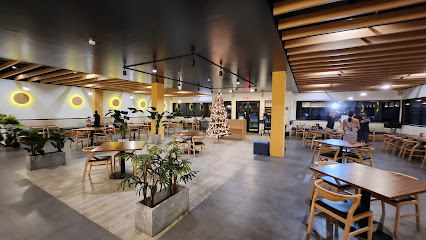
Caravan of Food
Experience Saipan's culinary delights at Caravan of Food – where local flavors meet affordable dining in a vibrant atmosphere.
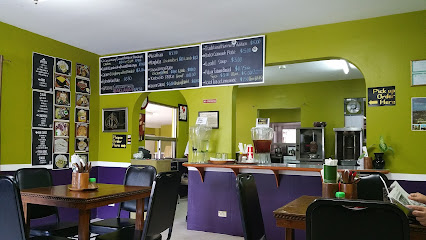
Markets, malls and hidden boutiques
I Love Saipan
Explore a treasure trove of local crafts, stylish apparel, and unique gifts at I Love Saipan, your go-to souvenir store in Garapan.

JOETEN HAFA ADAI SHOPPING CENTER
Explore the local flavors at Joeten Hafa Adai Shopping Center, your go-to grocery destination in Saipan with diverse offerings and a welcoming atmosphere.
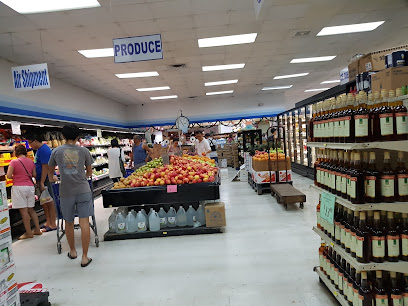
I Love Saipan Outlet Store, Middle Road
Explore the I Love Saipan Outlet Store for unique clothing, home goods, and local products at incredible prices in Saipan.
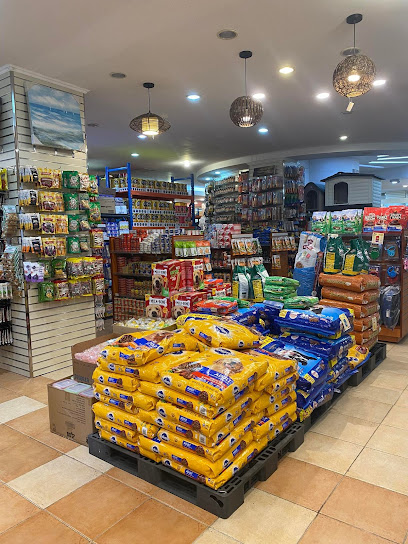
Welcome Supermarket
Explore Welcome Supermarket in Saipan for a comprehensive selection of groceries, local delicacies, and everyday essentials during your island adventure.
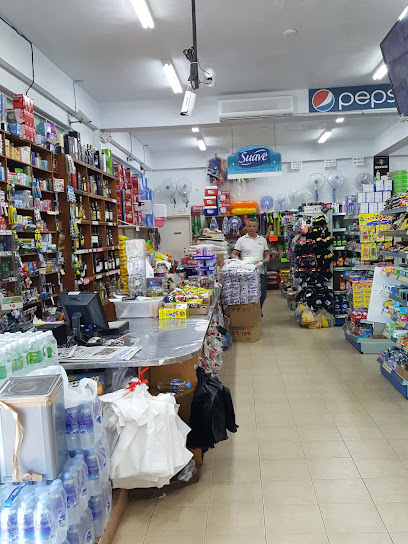
ABC Stores #702
Explore the vibrant ABC Stores #702, your go-to gift shop in Garapan for souvenirs, local crafts, and travel essentials in the Northern Mariana Islands.
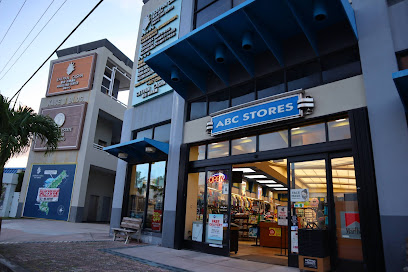
Zori Zori
Discover unique gifts and local crafts at Zori Zori, your go-to shop in Saipan for authentic souvenirs from the Northern Mariana Islands.
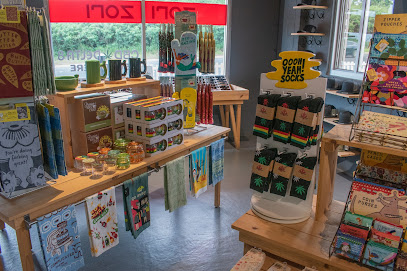
SAN ROQUE MARKET
Explore Saipan's vibrant culture at San Roque Market, where local flavors and crafts come together in a community hub.

Hybrid Shop
Explore the Hybrid Shop in Garapan for unique gifts, fashion, and photography essentials, showcasing the vibrant culture of Saipan.
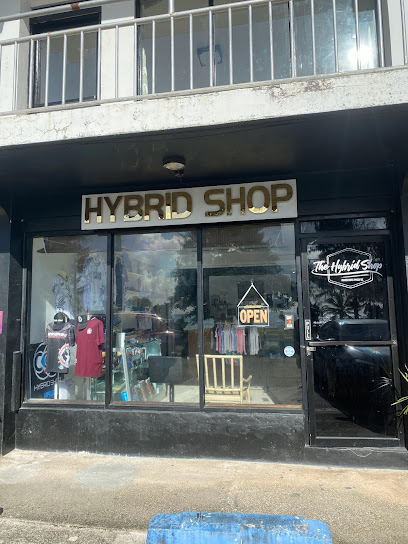
Made In Saipan
Explore the charm of Saipan at Made In Saipan, your go-to gift shop for unique local crafts and souvenirs that celebrate island culture.
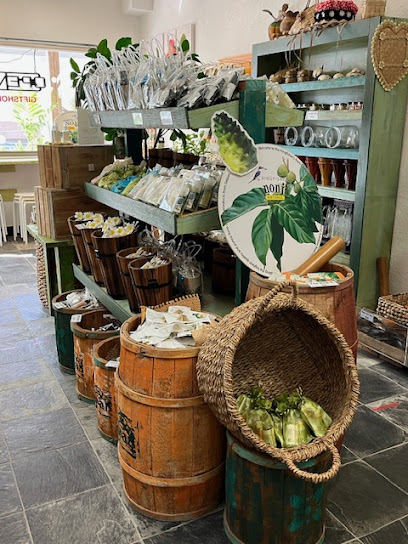
Moonlight
Discover stylish clothing and accessories at Moonlight, a trendy clothing store in Saipan that captures the spirit of island fashion.
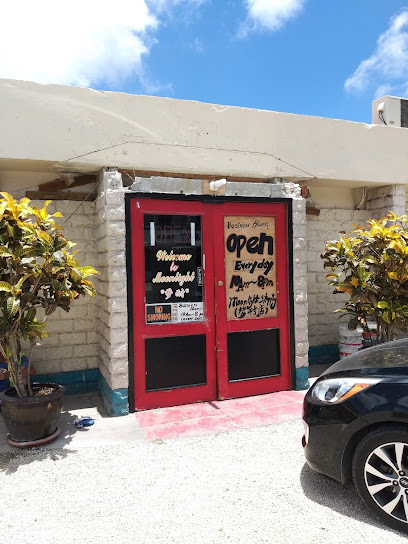
Cool Mart
Experience the best of local and international grocery shopping at Cool Mart in Saipan, your one-stop destination for fresh produce and daily essentials.
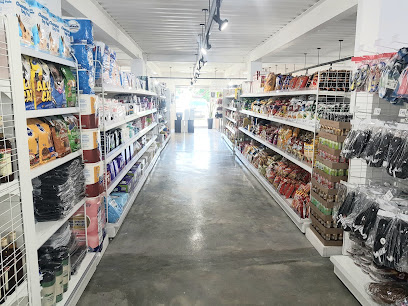
Next Level Thrift & Consignment Shop
Explore unique vintage finds at Next Level Thrift & Consignment Shop in Saipan, where every item tells a story and affordability meets style.

Kiki's
Discover Kiki's in Saipan: A stylish women's clothing store offering unique fashion, beauty products, and accessories for the modern traveler.

Latte Store 라떼 스토어
Shop unique gifts and souvenirs at Latte Store in Garapan, Saipan, and take a piece of paradise home with you.
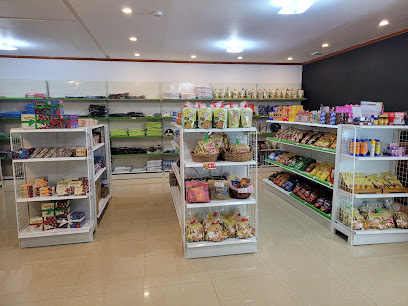
Dollar Days
Explore Dollar Days in Saipan for unique gifts, vibrant party supplies, and beautiful floral arrangements for every celebration.
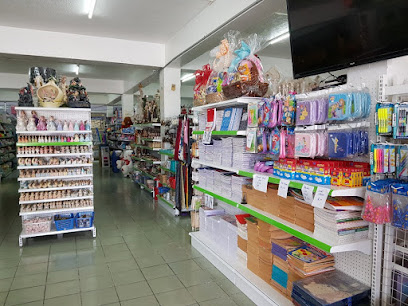
Essential bars & hidden hideouts
Godfather's Bar
Experience the vibrant nightlife at Godfather's Bar in Saipan, where live music and friendly vibes create unforgettable evenings.
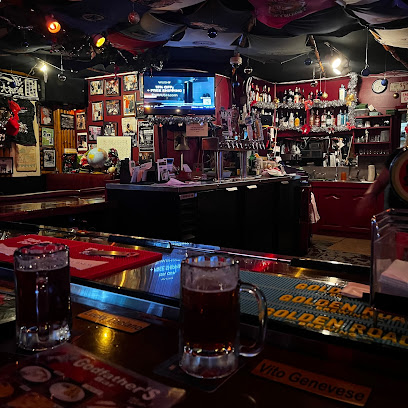
Naked Fish Bar & Grill
Experience the vibrant flavors and lively atmosphere of Naked Fish Bar & Grill, a culinary hotspot in Saipan offering fresh seafood and live music.
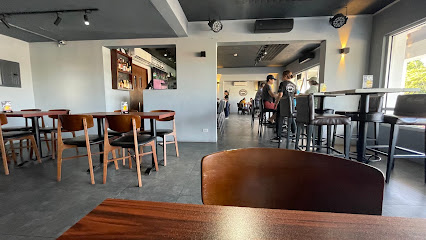
Jonny's Bar & Grill
Experience the vibrant flavors and laid-back atmosphere at Jonny's Bar & Grill in Garapan, Saipan - a perfect blend of culinary delight and sports excitement.
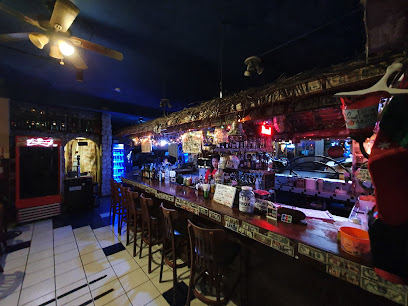
True North Bar And Grill
Experience the vibrant culinary scene of Saipan at True North Bar And Grill, where delicious grilled dishes and island hospitality await you.
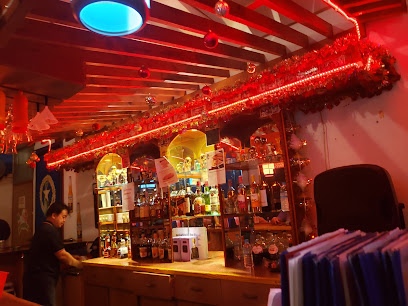
Skipper's Beach Bar
Experience tropical bliss at Skipper's Beach Bar in Saipan, where refreshing drinks and stunning ocean views await every visitor.
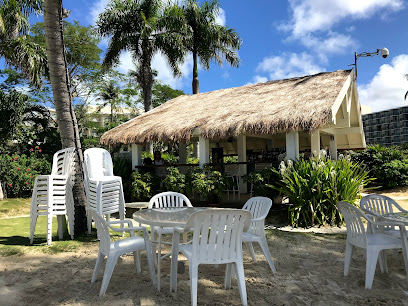
Safehouse Bar
Experience the vibrant nightlife of Saipan at Safehouse Bar, where great drinks and a welcoming atmosphere await.
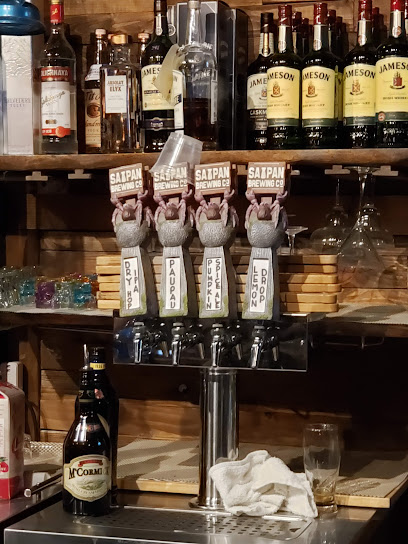
Tapped Out
Explore Tapped Out in Garapan, Saipan, where craft beer meets delicious dining in a vibrant and welcoming atmosphere.
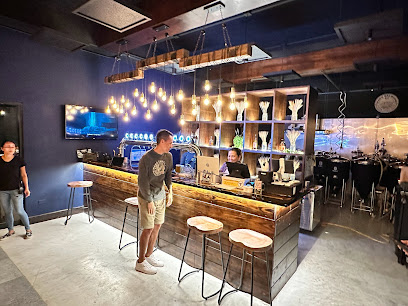
Boss Karaoke Bar
Experience the vibrant nightlife of Saipan at Boss Karaoke Bar - where every night is a musical celebration!
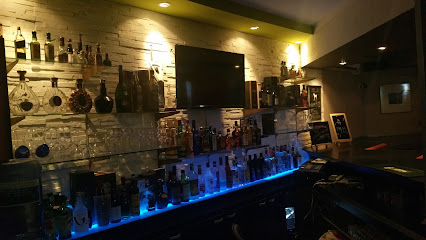
VFW Bar
Experience the vibrant nightlife of Saipan at VFW Bar, a local favorite for drinks, music, and good company in the heart of Garapan.
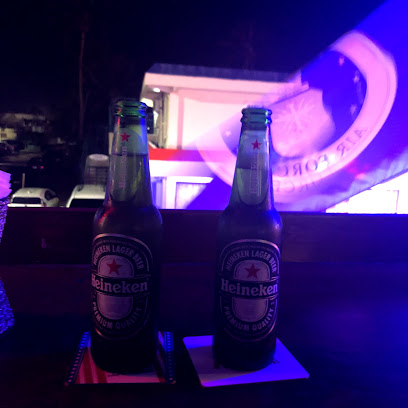
Relox Bar
Discover Saipan's nightlife at Relox Bar, a lively karaoke bar with an extensive song list and vibrant atmosphere perfect for tourists.
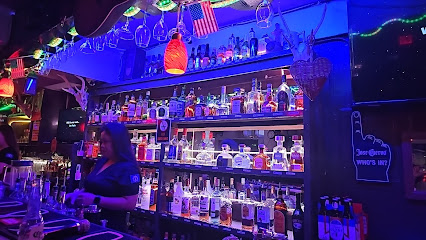
Last Shot Bar
Experience the vibrant nightlife at Last Shot Bar in Saipan, where tropical drinks and a lively atmosphere come together for an unforgettable evening.
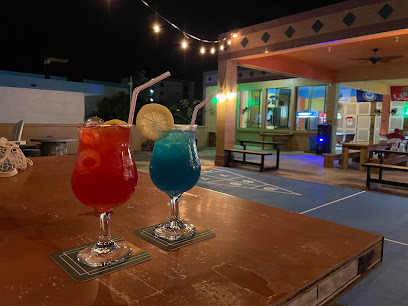
9/Eleven RestoBar
Discover the perfect blend of dining and nightlife at 9/Eleven RestoBar in Saipan - where delicious food meets a vibrant atmosphere.
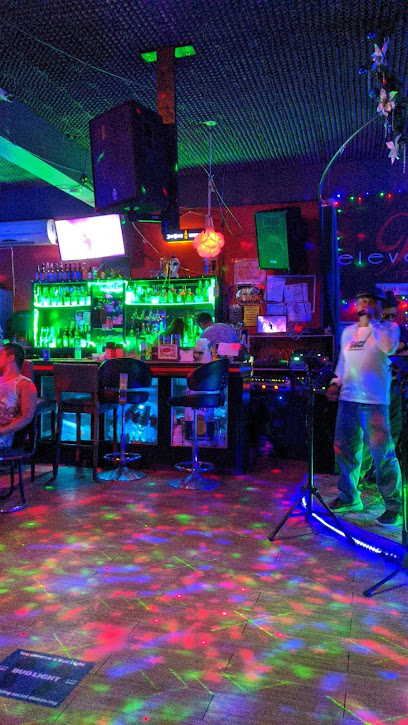
Cheers Karaoke Bar
Experience the lively spirit of Saipan at Cheers Karaoke Bar, a must-visit for music lovers and those seeking a fun night out in Garapan.
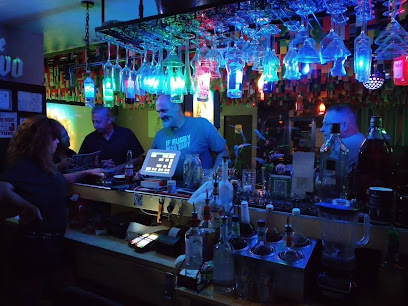
6JMS BAR & GRILL
Discover the vibrant flavors and lively atmosphere at 6JMS Bar & Grill in Saipan, where delicious food meets tropical fun.
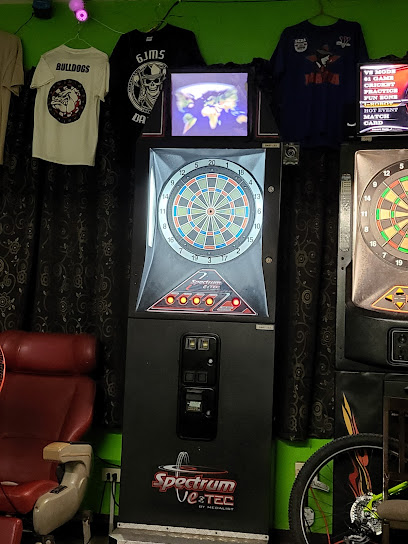
Local Phrases about Banzai Cliff
-
- HelloHåfa Adai
[HAH-fah ah-DIE] - GoodbyeAdios
[ah-DYOS] - YesHå'u
[HAH-oo] - NoTi hu
[TEE hoo] - Please/You're welcomePalang si Yu'us
[pah-LAHNG see YOOS] - Thank youSi Yu'us Ma'åse
[see YOOS mah-AH-seh] - Excuse me/SorryDispensa
[dee-SPEN-sah] - How are you?Kao hu sa'?
[KOW hoo sah] - Fine. And you?Maolek. Yan yu'?
[mah-oh-LEK. yahn yoo] - Do you speak English?Måolek na siha i Ingles?
[mah-oh-lek nah SEE-hah ee IN-gles] - I don't understandTi hu kumuentendu
[TEE hoo koo-mwen-TEN-doo]
- HelloHåfa Adai
-
- I'd like to see the menu, pleaseMåolek na kummesa i menyu, palang
[mah-oh-lek nah koo-MMEH-sah ee MEHN-yoo, pah-LAHNG] - I don't eat meatTi hu kumåna karne
[TEE hoo koo-MAH-nah KAR-neh] - Cheers!Biba!
[BEE-bah] - I would like to pay, pleaseMåolek na chagi, palang
[mah-oh-lek nah CHAH-gee, pah-LAHNG]
- I'd like to see the menu, pleaseMåolek na kummesa i menyu, palang
-
- Help!Ayuda!
[ah-YOO-dah] - Go away!Tåya umalåhu!
[TAI-yah oo-mah-LAH-hoo] - Call the Police!Tåya umalåhu i Polisia!
[TAI-yah oo-mah-LAH-hoo ee poh-LEE-see-yah] - Call a doctor!Tåya umalåhu i doktor!
[TAI-yah oo-mah-LAH-hoo ee dawk-TOHR] - I'm lostKi manhåhu
[kee mahn-HAH-hoo] - I'm illKi manmalåhu
[kee mahn-mah-LAH-hoo]
- Help!Ayuda!
-
- I'd like to buy...Måolek na kumprå
[mah-oh-lek nah koom-PRAH] - I'm just lookingKuentusi lang
[kwen-TOOS-ee lahng] - How much is it?Kåt i precio?
[kaht ee PREH-syoo] - That's too expensiveTåya demalåhu
[TAI-yah deh-mah-LAH-hoo] - Can you lower the price?Må'åyo i precio?
[mah-AH-yoh ee PREH-syoo]
- I'd like to buy...Måolek na kumprå
-
- What time is it?Kåt i ora?
[kaht ee OR-ah] - It's one o'clockI lumåhi
[ee loo-MAH-hee] - Half past (10)Munga (10)
[MOO-ngah (10)] - MorningGof mañaina
[gohf mah-NYAH-ee-nah] - AfternoonGof kadtoña
[gohf kahd-TOH-nyah] - EveningGof tåno
[gohf TAH-no] - YesterdayKåntiempo
[KAHN-tyem-poh] - TodayKåntiempo na siha
[KAHN-tyem-poh nah SEE-hah] - TomorrowKåntiempo masångan
[KAHN-tyem-poh mah-SAHNG-ahn] - 1Mågas
[MAH-gahs] - 2Hugua
[HOO-gwah] - 3Tulu
[TOO-loo] - 4Fatfat
[FAHT-faht] - 5Lima
[LEE-mah] - 6Gunum
[GOO-nuhm] - 7Fitu
[FEE-too] - 8Guålu
[GWAH-loo] - 9Sigua
[SEE-gwah] - 10Månot
[MAH-nawt]
- What time is it?Kåt i ora?
-
- Where's a/the...?Kåt i...
[kaht ee...] - What's the address?Kåt i direksion?
[kaht ee dee-rek-syon] - Can you show me (on the map)?Må'åyo i mapanå?
[mah-AH-yoh ee mah-PAH-nah] - When's the next (bus)?Kåt i siguiente (bus)?
[kaht ee see-gwee-YEN-teh (boos)] - A ticket (to ....)Un tiket (para...)
[oon tee-KEHT (pah-rah)]
- Where's a/the...?Kåt i...
History of Banzai Cliff
-
Banzai Cliff, located on the northern tip of Saipan in the Northern Mariana Islands, is a site of immense geographical and cultural significance. The cliff offers stunning panoramic views of the Pacific Ocean and is surrounded by lush vegetation, making it a visually striking landmark. The site holds deep cultural and historical importance for the local Chamorro and Carolinian communities, who have lived in the region for centuries. Traditional practices and folklore associated with the ocean and the land are part of the cultural fabric of the area.
-
Banzai Cliff gained historical prominence during World War II, particularly during the Battle of Saipan in June and July of 1944. The battle was a crucial part of the Pacific Campaign, with American forces aiming to capture the island from the Japanese. The conflict was fierce and resulted in significant casualties on both sides. The capture of Saipan was instrumental in bringing American bombers within range of the Japanese mainland, thus marking a turning point in the war.
-
In the closing days of the Battle of Saipan, Banzai Cliff became the site of a tragic and harrowing event. Faced with the imminent defeat, hundreds of Japanese soldiers and civilians chose to leap to their deaths from the cliff rather than surrender to the advancing American forces. This mass suicide was driven by a combination of fear, propaganda, and a deeply ingrained sense of honor. The event is remembered as a poignant and sobering chapter in the history of the Pacific War.
-
Today, Banzai Cliff serves as a solemn memorial to those who lost their lives during the tragic events of World War II. Various monuments and plaques have been erected to honor the memory of the Japanese soldiers and civilians who perished. The site is visited by tourists, historians, and descendants of those who fought in the battle, making it a place of reflection and remembrance. The area is often adorned with flowers, incense, and other offerings, symbolizing respect and homage to the fallen.
-
Despite its wartime history, Banzai Cliff remains an important cultural site for the local communities. It represents resilience and the continuity of life and traditions in the Northern Mariana Islands. Throughout the year, various cultural events and ceremonies are held in the vicinity, celebrating the rich heritage of the Chamorro and Carolinian peoples. The cliff continues to be a place where history and culture converge, offering visitors a profound and immersive experience.
Banzai Cliff Essentials
-
Banzai Cliff is located on the northern tip of Saipan, the largest island of the Northern Mariana Islands. The nearest airport is Saipan International Airport (SPN), which receives international flights mainly from Asia and Guam. From the airport, you can take a taxi or rent a car to reach Banzai Cliff, which is approximately a 30-minute drive away. There are also bus tours that include Banzai Cliff as a stop.
-
Transportation options on Saipan include taxis, rental cars, and organized tours. Taxis are available but can be expensive for long distances. Renting a car is often the most convenient option for exploring the island at your own pace. Public transportation is limited, so it is advisable to arrange your travel in advance. Some hotels offer shuttle services to popular tourist destinations.
-
The official currency in the Northern Mariana Islands is the US Dollar (USD). Credit cards are widely accepted in hotels, restaurants, and larger shops. However, it is advisable to carry some cash for smaller establishments and local markets. ATMs are available in Saipan, but it is wise to have enough cash on hand for areas with limited banking facilities.
-
Saipan is generally a safe destination for tourists. However, it is always prudent to take standard precautions. Avoid walking alone at night in isolated areas and keep an eye on your belongings in crowded places. There are no specific high-crime areas targeting tourists, but staying vigilant and aware of your surroundings is recommended.
-
In case of emergency, dial 911 for immediate assistance. The local police station and medical facilities are available on Saipan. It is recommended to have travel insurance that covers medical emergencies. For minor health issues, there are pharmacies where you can purchase over-the-counter medications. Always keep emergency contact numbers and your insurance details handy.
-
Fashion: Do dress modestly, especially when visiting memorial sites like Banzai Cliff. Avoid wearing revealing clothing. Religion: Do respect the historical significance of the site. Public Transport: Do be polite and patient as public transport options are limited. Greetings: Do greet people with a smile and a simple 'hello.' Eating & Drinking: Do try local dishes and be courteous if invited to eat with locals. Don’t litter or leave waste behind, especially at historical sites.
-
To experience Banzai Cliff like a local, visit during the early morning or late afternoon to avoid the heat and crowds. Engage with local guides who can provide valuable historical insights. Don’t miss out on exploring the surrounding areas, such as the Last Command Post and Suicide Cliff, to get a fuller understanding of the historical context. Additionally, try local Chamorro and Carolinian dishes at nearby eateries.
Nearby Cities to Banzai Cliff
-
Things To Do in Capital Hill
-
Things To Do in Kagman
-
Things To Do in Garapan
-
Things To Do in Saipan
-
Things To Do in Koblerville
-
Things To Do in Yigo
-
Things To Do in Dededo
-
Things To Do in Tamuning
-
Things To Do in Tumon
-
Things To Do in Mangilao
-
Things To Do in Hagåtña
-
Things To Do in Sinajana
-
Things To Do in Agana Heights
-
Things To Do in Santa Rita
-
Things To Do in Agat






